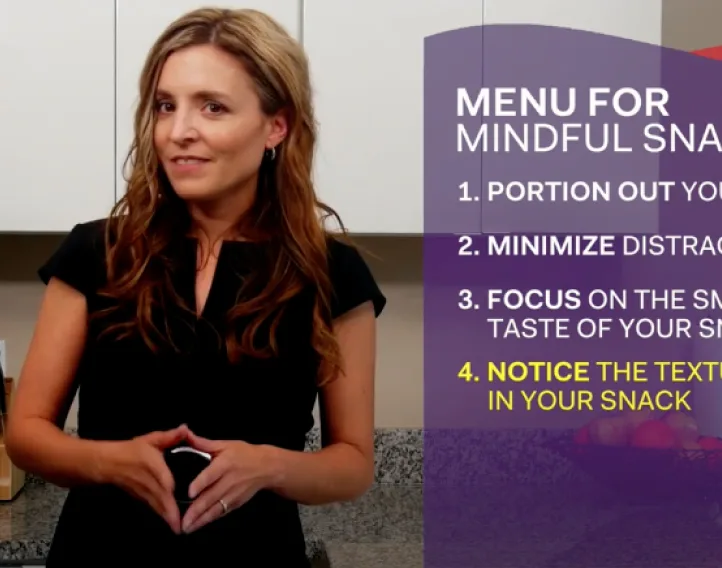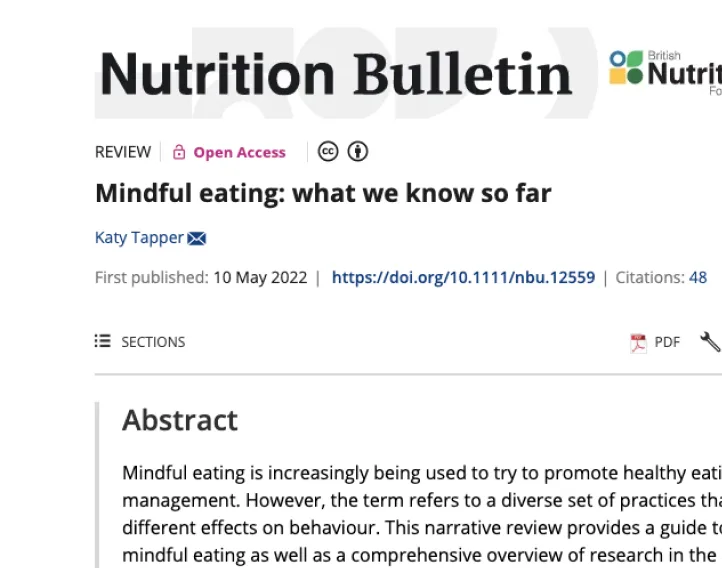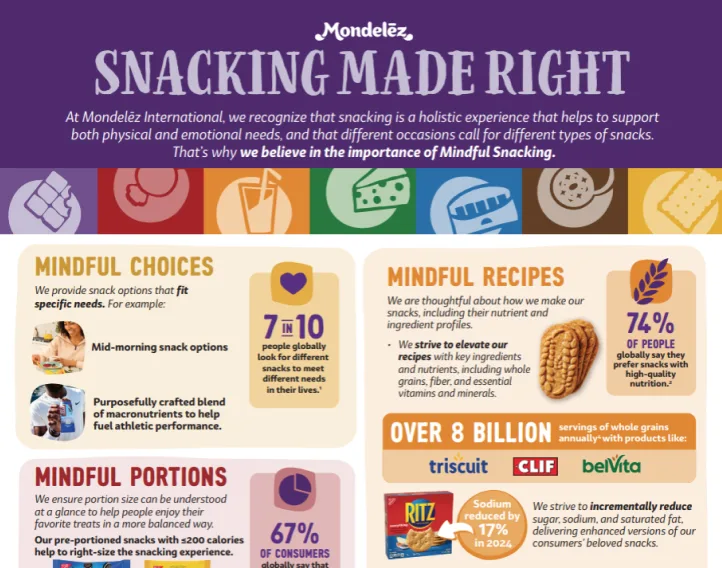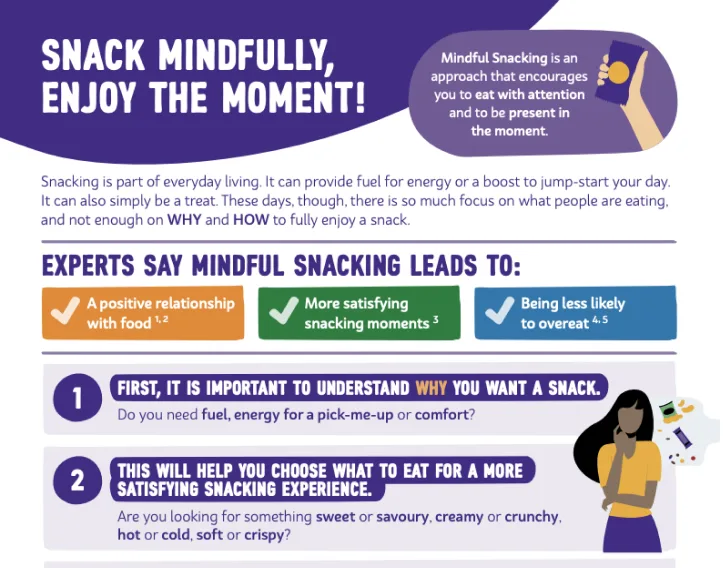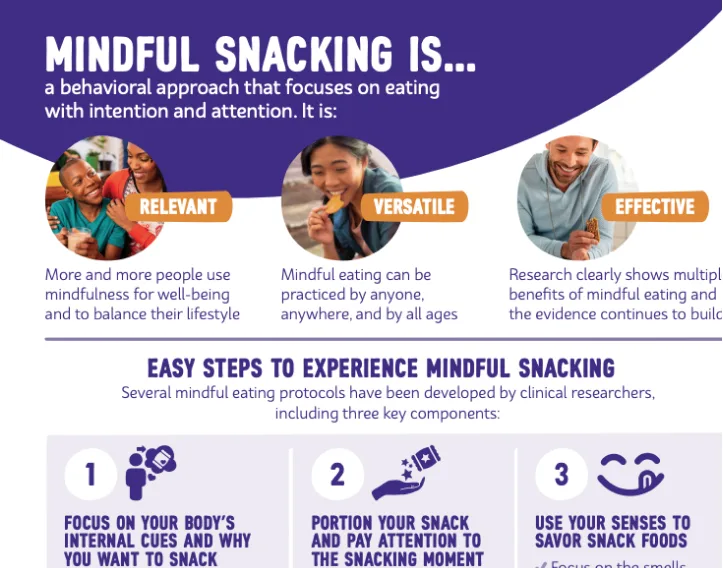Snacking: A physical and emotional experience
Snacking is a universal behavior that transcends cultures and geographies, with adults averaging 1 to 4 snacking occasions per day.1-11 The reason for snacking is personal and not just about satisfying hunger - it's also for nourishment, pleasure, culinary adventure, or the increasingly important pause in our hectic lives. At Mondelēz International, we recognize that snacking is a holistic experience that helps support both physical and emotional needs. That’s why we believe in the importance of Mindful Snacking.



WHAT IS MINDFULNESS?

DEFINING MINDFULNESS
Dr. Jon Kabat-Zinn, the founder of University of Massachusetts’s Mindfulness-Based Stress Reduction program, defines mindfulness as “paying attention to the present moment on purpose while being non-judgmental on thoughts and feelings.” 12,13
Mindful Snacking:
How Mindfulness Supports Positive Snacking Moments
“Mindfulness” can be applied to a variety of snacking moments in support of a healthy lifestyle. Mindful Snacking – choosing and enjoying snacks with both attention and intention – fosters feelings of satisfaction while helping to support a balanced diet. At Mondelēz International, we’re dedicated to empowering people to snack mindfully by offering a wide range of choices tailored to different snacking moments, while enhancing the nutrient and ingredient profile of our recipes, providing clear labeling and portion guidance, and promoting positive and mindful eating behaviors.Mindful Choices
From morning nourishment and exercise fuel to afternoon pick-me-ups and small moments of joyful delight, people seek snacks that fit their specific needs. Our State of Snacking global trend report helps us understand what people want and need from their snacks.25 Guided by the evolving trends and consumer expectations, we continue to offer choices within our portfolio designed for different snacking moments.

Mindful Recipes
Nearly three quarters of people globally say they prefer snacks with a high-quality of nutrition.25 We are thoughtful about how we make our snacks, including their ingredients and nutrient profiles. For years, we’ve worked to incrementally reduce sugar, sodium, and saturated fat while elevating our recipes with whole grains, fiber, and essential vitamins and minerals.

Mindful Portions
Sixty nine percent of consumers globally say they look for snacks that are portion-controlled.25 Portion guidance can help people enjoy their favorite snacks in a more conscious and balanced way.26-29 We offer snacks in individually wrapped portions with 200 calories or less and provide Mindful Portion information on pack to help empower our people to right size their snacking experience and make more informed choices.

Mindful Eating
Science suggests mindful eating leads to more pleasure and satisfaction,19-24 while helping support well-being.30 We have confirmed that nearly 80% of people globally say they enjoy snacks more when consumed mindfully.25 We strive to embed mindfulness into how we craft our foods and, through education, encourage people to savor the whole eating experience – be present, enjoy the snack with all the senses, and be aware of hunger and fullness cues.



